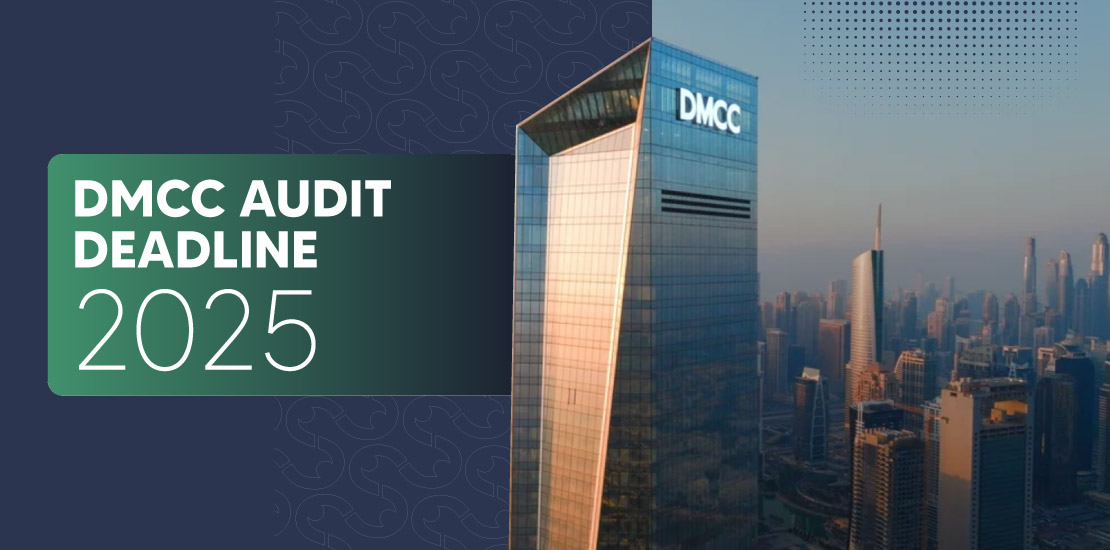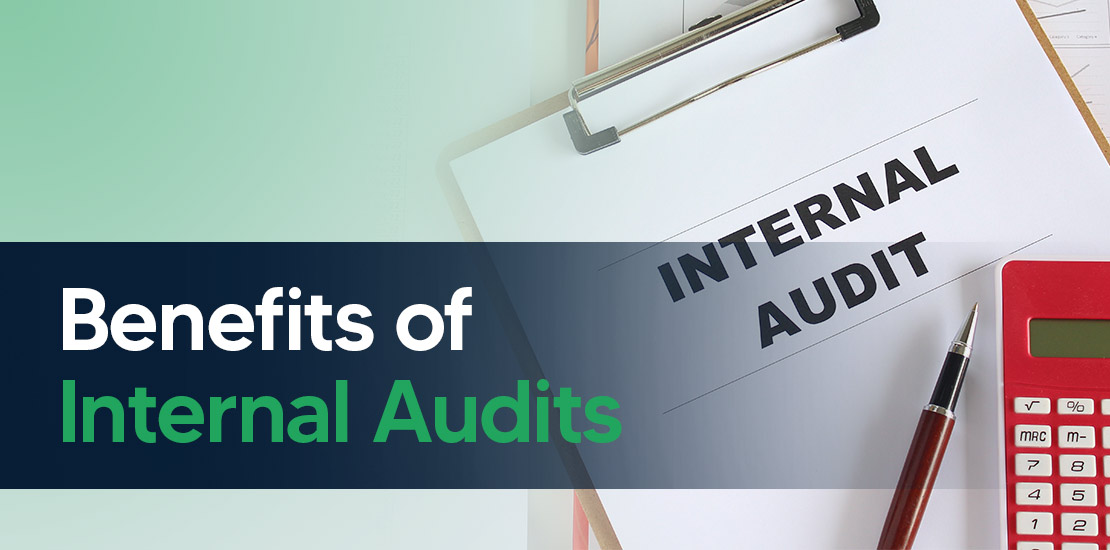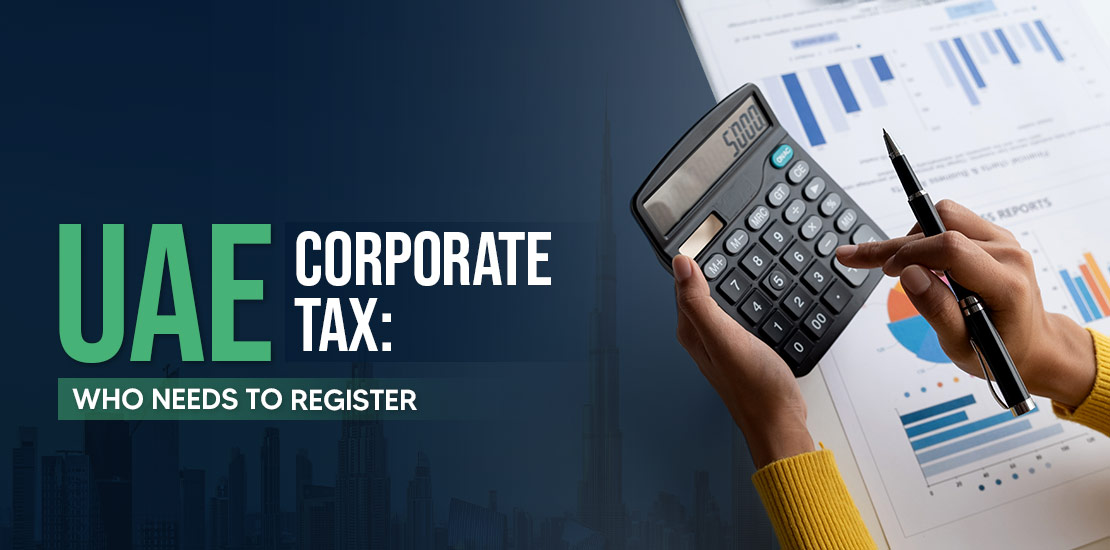Table of Contents
- What is DMCC Dubai, UAE?
- Audit Submission Deadline Extended
- Why Was the Deadline Extended?
- Audit Requirements in the DMCC Free Zone
- Documents Required for the DMCC Audit
- Why is Audit So Important in DMCC?
- What If a Company Fails to Submit the Audit?
- How to Prepare Your DMCC Audit in the UAE?
- Common Mistakes to Avoid During the DMCC Audit Process
- Benefits of Submitting Your Audit on Time in the UAE
- Stay Ahead of the DMCC Audit Deadline with Shuraa Tax!
The DMCC audit deadline plays an essential role for businesses operating in the Dubai Multi Commodities Centre, ensuring each company maintains transparency and financial accountability. Under DMCC regulations, every licensed entity must submit its annual DMCC audit report prepared by an approved auditor.
This isn’t just a formality; your audit filing confirms that your books are accurate, your operations are compliant, and your business is in compliance with the authority’s financial standards. As the 2025 deadline approaches, companies should start gathering financial statements, cross-checking documentation, and coordinating with auditors early to avoid unnecessary stress, penalties, or delays. Staying proactive now means running your business with confidence and maintaining a strong standing within one of Dubai’s most respected free zones.
What is DMCC Dubai, UAE?
The Dubai Multi Commodities Centre (DMCC) is one of the most popular free zones in the UAE, known for offering a business-friendly environment and easy access to international markets.
Located in the heart of Dubai at Jumeirah Lakes Towers (JLT), DMCC is home to thousands of companies from small start-ups to global trading giants. It provides a well-structured ecosystem in which businesses can operate smoothly, with clear support services and strong legal frameworks.
Audit Submission Deadline Extended
The DMCC audit deadline for the financial year 2024 has now been officially moved to September 30, 2025. Previously, businesses were required to submit their audited financial statements by June 30, 2024.
However, the new timeline provides companies with more breathing space to organise their records, collaborate with auditors, and ensure that their submissions are fully aligned with DMCC regulations.
Why Was the Deadline Extended?
This extension isn’t just a date of change; it reflects DMCC’s understanding of the fundamental challenges businesses face. Preparing for a DMCC audit involves gathering financial data, reviewing accounts, coordinating with auditors, and ensuring compliance with all applicable standards. These tasks can be time-consuming, especially for growing companies.
By extending the deadline, DMCC aims to:
- Support businesses in maintaining accurate and reliable financial reporting
- Reduce the pressure of rushed submissions
- Encourage transparency and good governance among member companies
In other words, the new deadline is meant to make the audit process smoother, more transparent, and more manageable, without compromising quality or compliance.
Audit Requirements in the DMCC Free Zone
If your company is registered in the DMCC (Dubai Multi Commodities Centre) Free Zone, conducting an annual audit isn’t just a formality; it’s a mandatory compliance requirement. DMCC has clear regulations that every business must follow, and submitting audited financial statements is among the most important. This audit helps DMCC ensure that companies maintain transparency, follow proper accounting standards, and operate in a responsible and compliant manner.
Once the audited financial statements are prepared, they must be submitted through the DMCC member portal. The Authority then reviews the audit report and financial statements to verify accuracy and compliance with established standards. If everything meets the required guidelines, DMCC issues a Certificate of Compliance, confirming that the company has successfully met its annual audit obligations.
Timeline to remember:
Companies operating in DMCC must submit their audited financial statements within 180 days from the end of their financial year. (Earlier, it was within 90 days, but updated timelines now allow more flexibility.)
Documents Required for the DMCC Audit
To complete the audit smoothly, the appointed auditor will request key financial and legal records. Some commonly required documents include:
- Trade License and Company Profile
- Office Lease Agreement or Tenancy Contract
- Trial balance and general ledger reports
- Passport copies of shareholders/directors
- Share Certificates
- Memorandum & Articles of Association (MoA & AoA)
- Fixed asset and depreciation schedule
- VAT registration details (if applicable)
- Bank statements and bank confirmation letters
- Customer and supplier listings
- Management accounts (Balance Sheet & P&L)
- Invoices, bills, receipt books, and supporting documents
- Fixed asset and depreciation schedule
Why is Audit So Important in DMCC?
Apart from being a regulatory requirement, the audit serves multiple valuable purposes:
| Benefit | Why It Matters |
| Compliance | Ensures the business meets DMCC and UAE financial regulations |
| Trade License Renewal | You cannot renew your DMCC license without submitting the audit |
| Financial Clarity | Helps business owners clearly understand financial health |
| Investor & Bank Confidence | Builds credibility when applying for loans or funding |
| Fraud Prevention | Highlights irregularities or weak internal controls |
| Corporate Tax Readiness | Helps align with UAE Corporate Tax requirements |
What If a Company Fails to Submit the Audit?
Not submitting the audit is considered a compliance violation. The most immediate consequence is that DMCC will not renew your trade license, which can eventually lead to penalties, restrictions, or even business suspension.
That’s why working with a DMCC-approved audit firm is essential; they ensure your accounts are correctly maintained, and your audit is completed on time.
How to Prepare Your DMCC Audit in the UAE?
Preparing for your DMCC audit doesn’t have to be stressful. In fact, if you organise your financial records throughout the year, the audit becomes a smooth and straightforward process. Since the DMCC (Dubai Multi Commodities Centre) requires companies registered in the free zone to undergo an annual audit, it’s essential to know what to expect and be prepared.
Below are some practical steps you can follow to ensure your audit goes off without any last-minute panic:
Step 1: Keep Your Financial Records Organised
Your auditor will need access to complete and accurate records. Make sure you maintain:
- Sales and purchase invoices
- Expense receipts
- Bank statements
- VAT records (if VAT registered)
- Payroll details
Simple accounting software (like Zoho, QuickBooks or Xero) can make your life easier.
Step 2: Reconcile Your Accounts Regularly
Don’t wait until the audit deadline.
Ensure your:
- Bank accounts match your internal records
- Petty cash balances are updated
- Inventory counts are accurate
Step 3: Understand DMCC Accounting Guidelines
DMCC requires financial statements prepared in accordance with International Financial Reporting Standards (IFRS). Your accountant should already be aware of this, but if you handle your own books, make sure your statements comply with IFRS rules.
Step 4: Choose a DMCC-Approved Auditor
Not every auditor can sign off on your DMCC audit.
- You must appoint an auditor from the DMCC Approved Auditors List.
- This ensures that the authority will accept your audit report without complications.
Step 5: Keep Corporate Documents Updated
Auditors may request supporting documents like:
- Trade License copy
- MoA (Memorandum of Association)
- Passport copies of shareholders
- Tenancy / flexi-desk agreement
Make sure all documents are current and valid.
Step 6: Prepare an Internal Review Before Audit
Do a basic internal check with your accountant:
- Are all expenses justified?
- Are there any unusual or unclear transactions?
- Do closing balances tie up correctly?
Step 7: Know Your Deadline
DMCC requires companies to submit audited financial statements every year, usually within a specific timeframe after your financial year-end. Missing the DMCC audit deadline may result in fines or delays in license renewal, so plan accordingly.
Common Mistakes to Avoid During the DMCC Audit Process
Preparing a DMCC audit doesn’t have to be overwhelming, but many businesses end up facing delays or penalties due to avoidable mistakes. Understanding these common slip-ups can help your company stay compliant and submit its audit smoothly.
1. Delaying the Audit Process
One of the most significant issues is waiting until the last moment to start the audit. Auditors need time to review financial records, request clarifications, and prepare the final reports. Starting late often leads to rushed work and potential errors.
2. Incomplete or Disorganised Financial Records
The DMCC audit requires well-organised accounts. If invoices, bank statements, ledgers, or reconciliations are incomplete or scattered, the auditor cannot verify your company’s financial position accurately. This leads to time-consuming back-and-forth communication.
3. Not Reconciling Bank Statements
Bank statement mismatches are a common red flag. Ensure all transactions recorded in your books match your bank’s statements; any discrepancies must be resolved or explained before the audit begins.
4. Ignoring DMCC Reporting Standards
DMCC requires financial statements to be prepared in accordance with International Financial Reporting Standards (IFRS). Using different accounting formats or informal internal spreadsheets can lead to rejection of the audit report.
5. Choosing Unapproved or Unqualified Auditors
DMCC only accepts audits performed by DMCC-approved auditors. Hiring an unapproved audit firm wastes time and money because DMCC will not receive the report.
6. Not Tracking Related Party Transactions
Transactions such as loans, salaries, or expenses between shareholders or sister companies must be appropriately recorded and supported. Lack of transparency in these areas can delay audit approval.
7. Neglecting to File the Audit on Time
Even after completing the audit, some companies forget to upload the report to the DMCC portal before the deadline. Late submissions can result in penalties or restrictions on license renewal.
Benefits of Submitting Your Audit on Time in the UAE
Submitting your audit report on time isn’t just about following regulations; it’s about building credibility and creating a strong financial foundation for your business. In the UAE, especially in free zones and mainland jurisdictions where audit compliance is mandatory, timely submission reflects how responsibly your company operates. Here are some key benefits:
1. Maintains Full Legal Compliance
Timely audit submission ensures your business aligns with UAE laws and free zone authority requirements. This helps you avoid penalties, warnings, or compliance-related delays while renewing your licenses.
2. Smooth Trade License Renewal
Submitting your audited financial statements on time speeds up and simplifies the license renewal process. Authorities often require the audit report before allowing renewal, so having it ready keeps operations running smoothly.
3. Enhances Business Credibility
A company that regularly audits its accounts and files records on time is seen as transparent, reliable, and well-managed. This can positively impact your brand reputation with clients, partners, and suppliers.
4. Builds Stronger Relationships with Banks
Banks often request audit reports when opening accounts, increasing credit limits, or approving loans. On-time audit submissions help maintain trust and make financial approvals easier and faster.
5. Facilitates Accurate Financial Planning
An audit provides a clear and accurate view of your company’s financial health. This helps management make informed decisions related to budgeting, expansion, cost control, and investments.
6. Avoids Fines and Penalties
Delays can lead to monetary penalties and administrative complications. Submitting time helps you avoid unnecessary financial loss and stress.
7. Supports Investor and Stakeholder Confidence
Investors prefer financially disciplined companies. A timely audit shows that the business is being managed responsibly, which can attract or retain potential investors and partners.
Stay Ahead of the DMCC Audit Deadline with Shuraa Tax!
In the end, staying on top of your DMCC audit isn’t just about meeting a requirement; it’s about protecting the credibility and continuity of your business in one of Dubai’s most reputable free zones. With the DMCC audit deadline now extended, companies have a valuable opportunity to organise their financial records, coordinate with auditors, and ensure their submissions fully comply with DMCC regulations.
Preparing early helps you avoid stress, penalties, and last-minute complications, and more importantly, it keeps your trade license renewal smooth and your business reputation strong.
If you want professional assistance in handling your DMCC audit, choosing the right, approved auditor makes all the difference. Shuraa Tax supports businesses with accurate audit preparation, compliance guidance, and complete documentation handling, ensuring your audit is submitted correctly and on time.
Need Help with Your DMCC Audit? Contact Shuraa Tax
📞 Call: +(971) 44081900
💬 WhatsApp: +(971) 508912062
📧 Email: info@shuraatax.com
Let Shuraa Tax make your DMCC audit process worry-free, smooth, and fully compliant.













